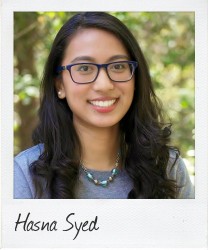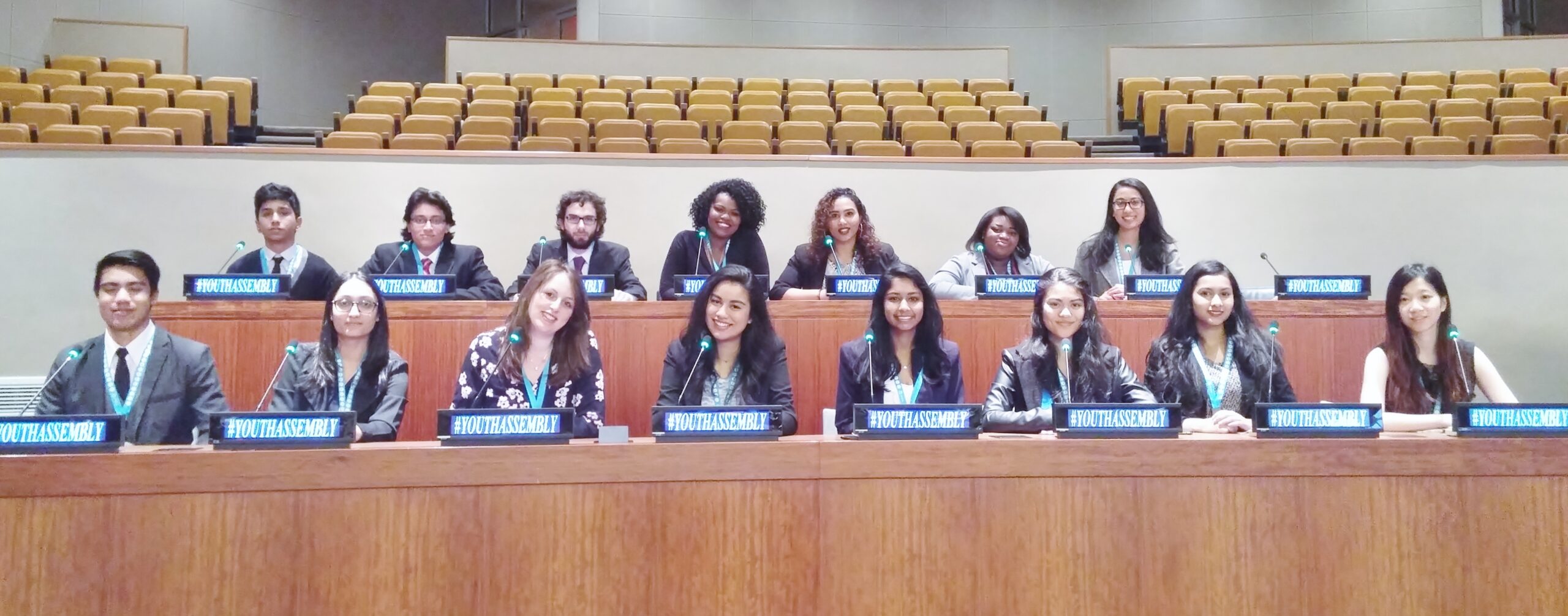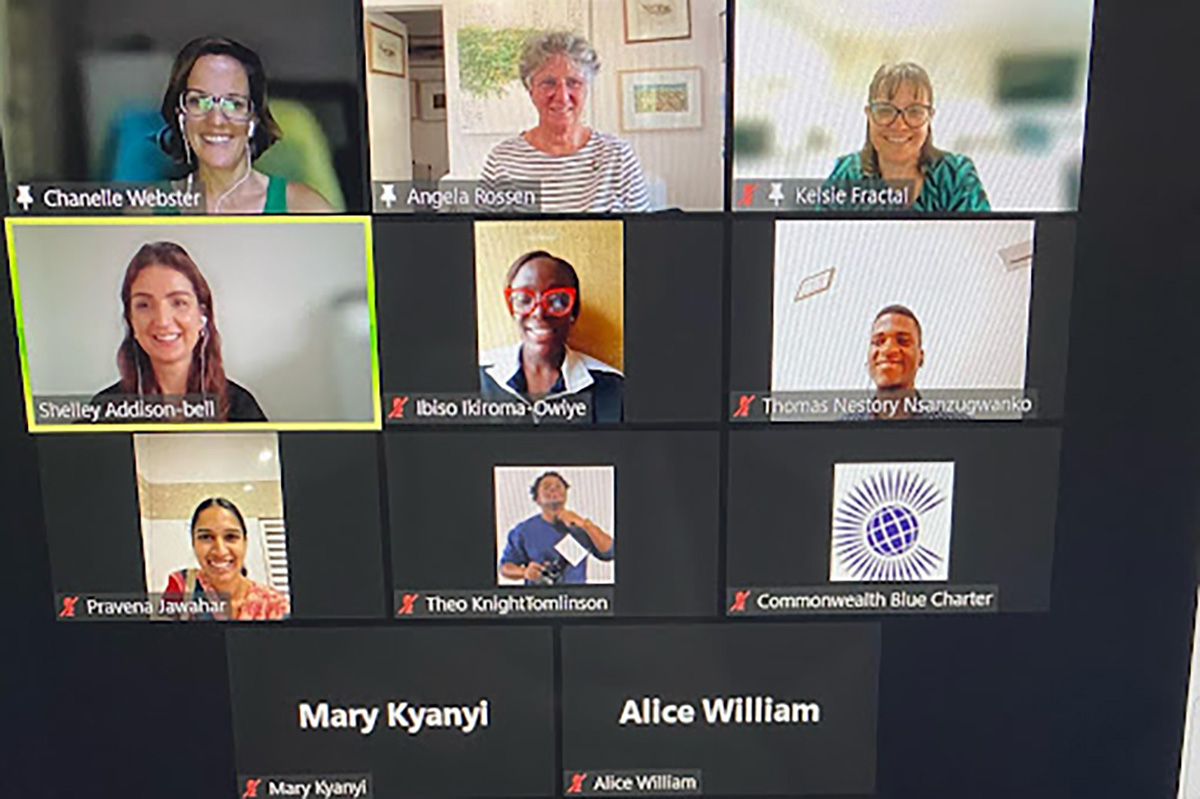“The ‘Now’ generation can help reach SDGs”
February 3rd, 2017 Sisters Hasna Syed, 22, and Hana Syed, 20, Correspondents from Toronto, Canada were among students representing Canada at the United Nations Headquarters for the Annual Youth Assembly. The goal was to raise awareness of the UN’s Sustainable Development Goals (SDGs) and offer youth an opportunity to start campaigns and initiatives toward reaching those goals.
Sisters Hasna Syed, 22, and Hana Syed, 20, Correspondents from Toronto, Canada were among students representing Canada at the United Nations Headquarters for the Annual Youth Assembly. The goal was to raise awareness of the UN’s Sustainable Development Goals (SDGs) and offer youth an opportunity to start campaigns and initiatives toward reaching those goals.
This particular group of students included us and 13 others who are connected by the motivation to solve problems that exist in our world today. Under Global Youth Impact (GYI) – a non-profit organization we created with our siblings – we were invited to attend the 2016 Youth Assembly (YA) as a Canadian delegation.
So why are we sharing our experience now? Well, with the start of the new year and António Guterres taking up the Secretary-General role, as well as 2017 marking only 13 years left to achieve the UN’s SDGs, we need youth voices more than ever. Looking at the world around us, from a Canadian/Commonwealth lens it is clear there is still a lot to be done.
 Millennials have been stereotyped as lazy, narcissistic, and ungrateful. Recently, however, we have come to be understood as a generation of genuine changemakers who want to better the state of the world we live in. While the 52 countries in the Commonwealth are diverse in location, size, economies and more, there is one commonality that is of significance – their youth population. Indeed, with that population comes a wealth of experiences, perspectives, and untapped knowledge and potential. Let’s talk about the interactions and opportunities we are or are not afforded to make genuine change and have our voices taken into consideration.
Millennials have been stereotyped as lazy, narcissistic, and ungrateful. Recently, however, we have come to be understood as a generation of genuine changemakers who want to better the state of the world we live in. While the 52 countries in the Commonwealth are diverse in location, size, economies and more, there is one commonality that is of significance – their youth population. Indeed, with that population comes a wealth of experiences, perspectives, and untapped knowledge and potential. Let’s talk about the interactions and opportunities we are or are not afforded to make genuine change and have our voices taken into consideration.
The theme of the YA was ‘The Role of Youth in the Implementation of the Sustainable Development Goals.’ Delegates were looking forward to the key-note speeches and workshops. We were excited about the opportunity to meet individuals who worked for the UN and hear their advice to youth about being involved in implementing lasting projects to achieve the SDGs. However, what ended up being the most exciting part of the Conference was getting to meet so many like-minded youth from around the world.
We heard from the UN Envoy on Youth, Ahmad Alhendawi;“UN Youth Champion,” Monique Coleman; and Ravi Karkara, Senior Adviser Strategic Partnership & Advocacy to the Assistant Secretary-General/Deputy Executive Director of UN-Women. While the speeches were intriguing, there was insufficient time for us to discuss our thoughts with the speakers. Instead, we were ‘talked at’ about work currently being done, which most of us already knew as delegates. Wasn’t youth engagement the entire point? Despite the mixed feelings from the general speeches, we looked forward to the coming workshops; hoping there would be meaningful discussions in smaller groups.
However, the sentiments of other students and our own team is that while some workshops were inspiring and engaging, they did not address or provide solid tools for action. The YA seemed lacking in listening to constructive critiques by youth voices who have experienced the ‘development project’, or at the least have vested interest in the current and historical processes of it. How can we be change-makers if our perspectives aren’t genuinely heard, or if we are hindered in getting resources to help find solutions? Lots of youth around the world today are playing roles in solving issues including the environment, poverty, and socioeconomic inclusion. But there could be so many more young people helping and having an impact if we were given palpable opportunities by the generations before us to do so.
By the second day of the conference we found many of the guest speakers told us the same thing in their speeches – that we were the generation of leaders that could make the world a better place. That we were the “next generation.” In many ways this is true. However, they were talking to a room full of people who already knew they want to make a difference, and for the most part were already taking steps to do so. It would have been more beneficial to have tools and suggestions to link our projects and ideas with theirs. Furthermore, we aren’t the next generation… we are the generation of today. We are the generation of now. In that sense, while the problems of today will affect our futures, it is also the problems of today that affect our present lives.
But this is not meant to sound negative. We have confidence that things can change. 2030 is coming soon. Active inclusion of young people (and not simply surface-level engagement such as a Twitter hashtag on our thoughts) in policy-making, project-building, and simply being at the ‘ideas table’ is needed more than ever. In doing so, we’ll be able to benefit people all over the world today through our fresh insights and experiences, working in conjunction with areas of knowledge from previous generations. We are going to be – and have already started to be – the people finding solutions to global problems, and as such it makes sense to tap into our potential now through non-superficial events and opportunities.
Indeed, while the Assembly was paradoxically a disappointing yet exciting experience, it did teach us something. It reminded us that we as young people across the Commonwealth and the globe need to remain in solidarity with one another. But we also need to start building bridges with the generations before us through new strategies that can ensure our ideas and voices will bring meaningful solutions to local and global development.
Photo: courtesy of Hasna Syed
…………………………………………………………………………………………………………………
About us: Hasna Syed is a Master’s student at the London School of Economics & Political Science. Hana Syed is an undergraduate student in neuroscience & psychology at the University of Toronto. The sisters are also singers and youth activists. Together with their youngest siblings, they sing professionally as DEYS and have written and performed issue-based songs. Currently, they have a song featured with the ILO’s Music Against Child Labour Initiative. They founded the non-profit organization, Global Youth Impact (GYI).
Contact us at Global Youth Impact or follow us on Twitter @GlobalYouthImp
…………………………………………………………………………………………………………………
Opinions expressed in this article are those of the author and do not necessarily represent the views of the Commonwealth Youth Programme. Articles are published in a spirit of dialogue, respect and understanding. If you disagree, why not submit a response?
To learn more about becoming a Commonwealth Correspondent please visit: http://www.yourcommonwealth.org/submit-articles/
…………………………………………………………………………………………………………………




